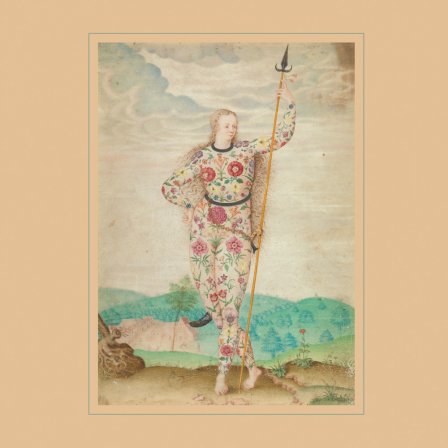Before we get into the newest missive from Virginia steel-string worker Daniel Bachman, let’s talk a little bit about Jack Rose. Few guitarists loom larger over the modern fingerstyle movement than Rose, and the man’s tragic, much-too-early passing has only compounded his legendary status within the rustic circles of contemporary folk. Rose is oft-heralded as an innovator and a boundary-pusher in the field of instrumental Americana, but that tag has always seemed a bit off to me. Of the many albums Rose released before his untimely death, none exhibited sounds that folk music hadn’t heard before in some iteration; his ragtime was straight Appalachia and Fahey, his raga cut from the same fabric as Basho. More notably, Rose was a storyteller in the classic sense, passing down the melodies and vernacular from generations before him, ensuring that their lessons wouldn’t be lost to the ever-changing times. Historians are quick to paint Rose as an artist on the fringe, but in reality, he was quite the opposite: Rose was a welcoming guide to the sounds of the American Primitive, a torchbearer to lead the huddled masses of the new millennium into the genre’s clear-headed, earthy waters.
Daniel Bachman has drawn influence from Jack Rose more than possibly any other guitarist, including the blues artists who originally shaped the form. While Bachman similarly looks backwards, openly working within the frameworks of tried and true blues structures, he also shows interest in his slowly-shaping personal voice. My single biggest critique of Rose is that his music was never able to convey a whole sense of who he actually was, but Bachman has always brought a unique kind of brusqueness to his playing. The strings on Bachman’s guitar sound loose and thick, and when complemented by his aggressive style of pick attack, the songs convey a dark, urgent violence, even as their chord progressions follow immediately recognizable and traditional patterns. At his best, Bachman’s interpretation of these old rhythms and hymns is exactly that: a retelling that imparts his own qualities onto the original text and helps us to understand his own stake in the game. Up until now, Bachman’s been content to convey himself more through his technique than his actual compositions, but this self-titled release makes a case for itself as the guitarist’s real coming-out statement, a collection of songs and song-shapes that push the limits of what it is that Bachman does and why we should listen to his story.
In keeping with the American Primitive’s obsession with recycling and reimagining older music, Daniel Bachman is in the tricky position of both setting in stone Bachman’s defining qualities and differentiating itself from what has come before. It immediately pulls off the latter with the piercing opener “Brightleaf Blues I,” an amorphous piece whose buzzsaw ambience channels all the intensity of Bachman’s style into one ear-splitting, primordial tone. That the track’s calmer, guitar-based second half feels as abstract and drooling as its first is a testament to Bachman’s vision. But where “Brightleaf Blues I” and “II” are among his most overtly concréte recordings to date, the remainder of the album’s songs are tight and direct, trading in his more typically sprawling tracks for something more contained and composed. “The Flower Tree” and “Wine And Peanuts” are impressive, twisted slices of front-porch bewilderment, each building to bucolic and galloping peaks without losing their musical sense of direction. Bachman instills his songs with dignity and consequence, laying down just enough traditional blues notes so that when he chooses to break free from them melodically, like on the majestic and resounding chorus of “Watermelon Slices on a Blue Bordered Plate,” it gives the more old-timey sections that much more purpose and effect. Even if this is the prettiest-sounding record he’s yet released, his strength of delivery and precision lend it the same dangerous energy of his previous work while delicately revealing sides of his music that he had only alluded to before.
With all fingerstyle guitarists, the question remains if there is anything new to be said with the form, and if there isn’t, then what’s the point of retelling these same old songs and stories? Like Jack Rose, Daniel Bachman is not at the forefront of any kind of genre-defying crusade, yet his music is satisfying nonetheless, both humble and intense and unconcerned with anything besides speaking in the manner that it does. With Daniel Bachman, he has delivered his most succinct and developed proclamation yet, a simply composed seven-song suite that captures the essence of who Bachman is and how he sees the mythical beast that is guitar music. For all of its harshness and grit, Daniel Bachman is an elegant, personal work, a letter written cozily from the hearth of modern country music, its ink smudges and scrawl an affectionate indicator of the hands that wrought them.
More about: Daniel Bachman




